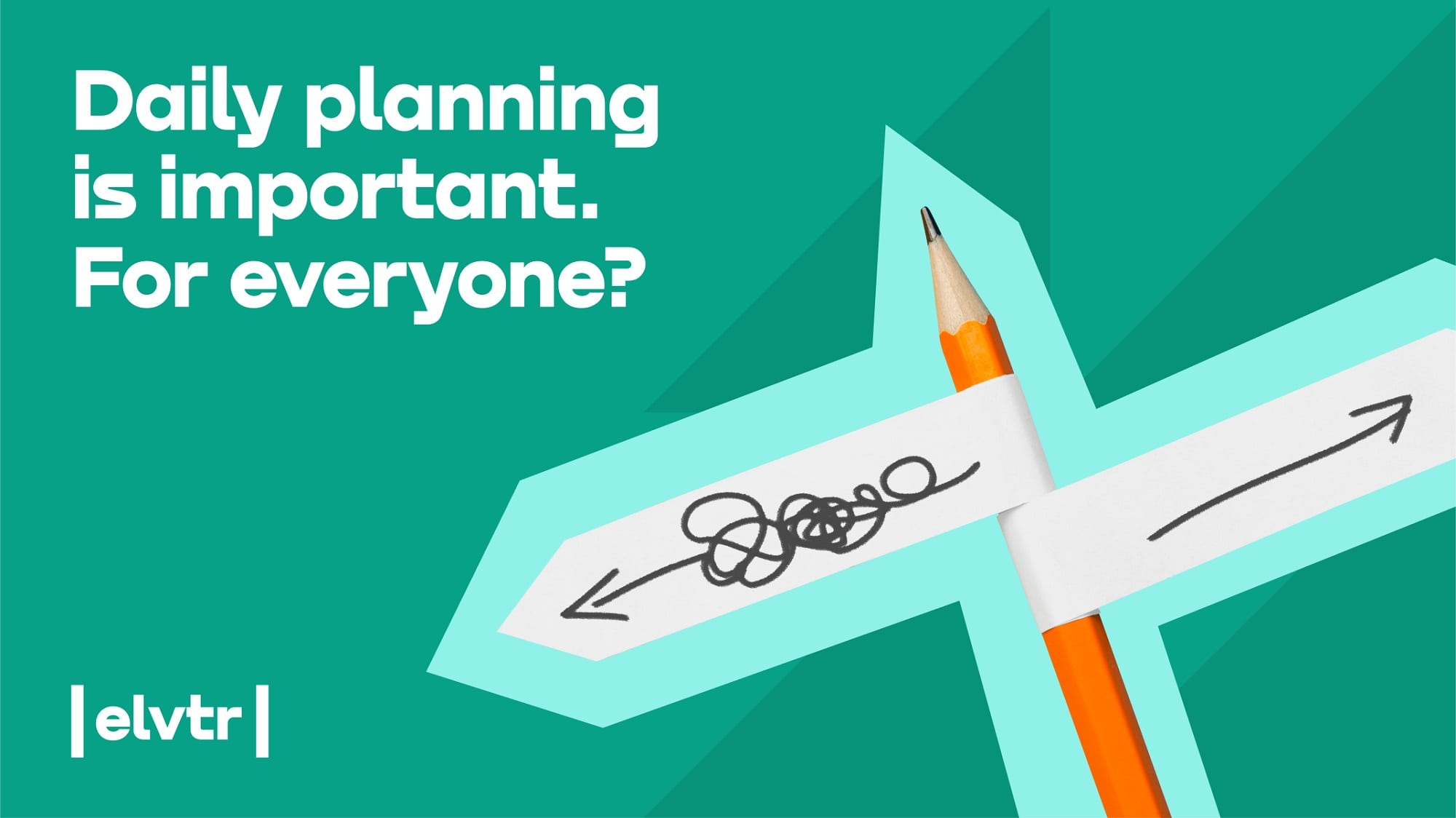- MAIN PAGE
- – elvtr magazine – 12 NON-OBVIOUS TIPS & TRICKS FOR SUCCESSFUL ONLINE LEARNING
12 NON-OBVIOUS TIPS & TRICKS FOR SUCCESSFUL ONLINE LEARNING

You've bought an online course and started watching the first lecture carefully. However, after the first 20 minutes, you got distracted (which was expected). Sitting for an hour and constantly focusing on one thing is difficult. Especially if the instructor shares new and not entirely clear information.
According to the International Agency Global Market Insights, the global market of online education is valued at $190 billion. By 2025, this figure will grow to $300 billion. However, according to statistics, 90% of people don't complete their purchased courses.
We'll highlight tips and tricks on how to overcome distractions and get the most out of learning, namely:
- How to make your memory work. We'll share useful info about the principles of the brain and memory that affect memorization as well as about the forgetting curve.
- How to set goals and motivate yourself. You will learn about backward planning and other ways to stay on track.
- How to manage your time. We'll share the key life hacks about deadlines that might be useful — unless you’re already a project management guru.
How to Overcome Constant Procrastination and Study Online Effectively
Students can remember 25–60% more information when taking online courses compared to offline learning. In addition, online education requires 40–60% less time than traditional classes. However, for online learning to be truly effective, it should be taken seriously.
#1. Use Backward Planning
Let's imagine you bought a video course on Big Data because you read on Google that learning this could boost your salary by +30%. You started learning with enthusiasm, but after a week, you got bored. It turned out not to be easy. Moreover, you didn't see the relation of Big Data to your profession. In the end, you never returned to that very same online course. Why did it happen?
The backward planning concept is very simple. See the goal from the very beginning. For this, you need:
- To determine what kind of knowledge and skills you want to boost
- To study the headings and brief descriptions of all sections of the course
Only after that, is it worth considering buying the course. Yes, we are also sometimes infuriated by generic advice like "Set a goal and go for it." But it is one of the most crucial online learning tips. You need to clearly understand why you are studying.
#2. Build the Learning Trajectory
To choose an off-the-shelf training course, create a competency map. Rate your skill level on a scale from 1 to 10 and determine what you would like to upgrade next. Plan the result and align your success with a deadline. Set measurable and achievable goals. But most importantly, don't bite off more than you can chew.
#3. Make a Study Schedule and Stick to It
Determine the time, place, and duration of training in advance. Decision-making is hard work. The brain gets tired of it. This study showed that American judges make effective decisions in the morning. Later in the day, the brain gets tired and gravitates toward simpler options that don’t require thinking.
A person makes about 35,000 decisions a day. Whether you choose what to wear or which career path to choose, your brain will still spend energy on it. Plus, decisions take time. It turns out that the more routine decisions you make, the less time and energy remain for really important ones. For this reason, many famous entrepreneurs including Steve Jobs and Mark Zuckerberg often wear the same clothes. They just free their time and brain from making that decision.
If you plan to study every Friday at 8 PM for 2 hours sitting in the living room, then you will likely be more productive. You won't spend your resources on solving menial issues that stop your flow.
YOU WOULD LIKE THIS ARTICLE:

Daily planning is important. For everyone?
Explaining what factors should be taken into account when planning.
#4. Set a Strict Deadline
People who don't have a deadline take 16% longer to complete a task than those who set it themselves, and 40% longer than people with an external deadline — that's the one that other people give you.
#5. Limit Access to Gadgets
Set aside your smartphone and other devices during study hours. Having your phone on your desk, even when you're not using it, impairs cognition and reduces productivity.
#6. Take Notes
Take notes while reviewing the lessons. In addition, it is effective to use the one-minute paper method: After the lecture, mark a minute and write down the most important information from memory. Research from the University of York in the UK has shown that students who regularly practice this method end up doing better on tests.
#7. Take Regular Breaks
Studies show that a person cannot be maximally focused for a long time. We start to get distracted and do five-minute tasks for hours. Maximum focus time is 50 minutes. To make learning easier, you need to give your brain a rest. For most people, 50 minutes of work and 10 minutes of rest will be a good fit. In order not to stray from this mode, use a regular timer or apps like Forest and Focus Booster.
Recommended courses
#8. Turn Your Knowledge Into Practice
At the end of the 19th century, German psychologist Hermann Ebbinghaus built a forgetting curve showing how much information a person can remember. In an hour, you will remember only 44% of the information from this article. A week later this figure will be less than 25%. In a month, you will remember 20% or even less. Out of sight, out of mind!
Most of the information is forgotten in the first hour after reading or listening to it. To avoid this, you need to repeat the information and implement the knowledge into practice. For instance, if you're taking a PowerPoint course, help colleagues make presentations.
#9. Repeat the Theory from the Course
When repeating the material, the speed of forgetting decreases. However, research shows that simply rereading or rewatching the material isn't enough. A learner who only re-reads the material completes the final test with 18–50%. The students who asked questions and discussed the topics scored between 30% and 75%.
Try these three approaches:
- The first approach: immediately, after gaining new knowledge. For this purpose, there are questions and tasks at the end of the lecture in most cases. Never done them? That might cost you 60% of all the information covered.
- Second approach: one day after reading. Discuss your newfound knowledge with friends or colleagues at work.
- Third approach: 3 months after the last repetition. Go back to the original material and repeat it. At this stage, new knowledge should already be part of your daily work.
#10. Find a Study Buddy
One of the most effective tips for online learning is working in groups. According to a study by Stanford University, working together fuels intrinsic motivation. Human life is wrought through working with others. Even a fiercely competitive basketball game is also a collaboration in which both sides must adhere to implicit and explicit rules to play the game.
If you are studying online, find opportunities to discuss the theory with other students. You can also take courses with friends.
#11. Go From Easy Tasks to Hard Ones
Tackle your easiest tasks first and you'll build confidence for the harder ones. There are at least three reasons we find it helpful to top-load the task list with easy items.
- Motion. The first step is usually the toughest. However, when you start with the easy steps, you lower the threshold for taking action.
- Emotion. Getting some quick wins boosts your mood. According to researchers Francesca Gino and Bradley Staats, finishing immediate, mundane tasks improves your ability to tackle tougher, important things. Your brain releases dopamine when you achieve goals. And since dopamine improves attention, memory, and motivation, even achieving a small goal can result in a positive feedback loop that makes you more motivated to work harder going forward.
- Momentum. Getting started and feeling good about your progress means it is easy to build momentum. According to the mentioned research, checking items off your list frees up the mental and emotional energy to focus on other projects. You might also find the tough items get easier as you go.
For example, you can fill out the weekly report first and work with data and build a Customer Journey Map before you prepare a presentation for your CEO.
#12. Combine Studying With Sports
Physical activity positively affects the ability to remember and learn. Active exercise increases the production of brain-derived neurotrophic factors. It is a protein that helps build new neural connections.
Even after a 20-minute walk, brain activity and memory improve significantly. A study from the University of California shows exercise boosts brain function, enhances learning and memory, and improves executive function at nearly any age.
A study conducted with college students in Ireland found that participants performed significantly better on memory tests after 30 minutes of cycling. Last but not least, researchers from Italy, China, and Thailand found that exercise can specifically improve the ability to learn new languages.
Therefore, before jumping into an online course for a couple of hours, you can take a walk, ride a bike, swim, or run a couple of laps around the park.
*ELVTR is disrupting education by putting proven industry leaders in a virtual classroom with eager rising stars. ELVTR courses offer 100% instructor driven content designed to give you practical knowledge within a convenient time frame. Choose the right course for you!


.png)
.png)